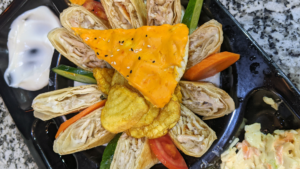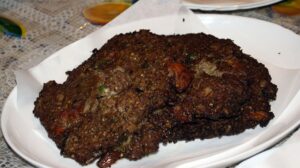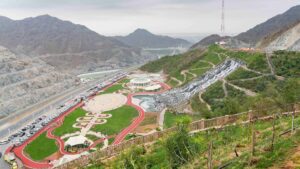Ramadan Mubarak! The holiest month in the Islamic calendar observed in the entire Muslim world, the Ramadhan al Mubarak! Millions of Muslims, for around 30 days each year, engage in religious thought and ritual fasting – or sawm – one of the Five Pillars of Islam, during the month of Ramadhan.
When is Ramadan?
Ramadhan is the ninth month of the Islamic calendar. In the year 2019, Ramadan is expected to fall on the 5th or 6th of May to the beginning of June. As the Islamic calendar follows a lunar year – with the start of each month dictated by a new crescent moon – the dates shift around 10 – 12 days each Gregorian year.
What is Ramadan?
Ramadhan is actually the month of fasting – one of the five pillars of Islam. Muslims around the world fast (sawm – صوم) during this one month from before sunrise to sunset. They abstain from consuming any sort of food (solid or liquid), drink, smoking & sex to concentrate on spiritual revival. Ramadhan is a period of devotion, reflection, and charity.
The holy month is celebrated to remind people about the plight of the poor and underprivileged, their life and feelings so they can participate more in noble causes and extend their support towards the needy. It’s a month of generosity, love and care – people increase their charities (Zakāt and Sadaqah) during Ramadan for been handsomely rewarded during the day of Judgment.
Fasting (sawm – صوم) starts from Suhūr or Suhoor (Arabic: سحور ) a pre-dawn meal and ends with Iftar (or Fatoor) (Arabic: إفطار) an evening (exactly at sunset) meal to break the fast.
Ramadhan comes to an end with the celebration of Eid al-Fitr (Arabic: عيد الفطر) for successfully completing Ramadan and involves Salat al-Eid (Arabic: صلاة العيد), grand feasts, parties and visiting relatives & friends.
Ramadan For Muslims?
For Muslims, Ramadhan means more than just to fast – not passing anything through the lips, but to refrain oneself from entering any sinful or unclean activities, engaging in more good deeds, purifying their behaviour, giving up smoking, cursing, gossiping or backbiting. Ramadhan reminds Muslims of their personal good fortunes and calls attention to those who are suffering.
Fasting is a period of cleansing – not just of the body, but of the soul as well.
All Muslims must participate in fasting except those who suffer from illness, pregnant or breastfeeding women and children (under the age of 15). Although children are encouraged to participate in fasting to get used to it and understand the practice.
Respect the culture you’re in!
Ramadan is a period of devotion, reflection, and charity. As a responsible traveller, the highest priority should be respecting the local values and norms wholeheartedly. As a visitor, nobody will expect you to fast (though you may fast if you want) but you should be aware of not consuming (or even displaying) food or drink in public during the day time. And it means no cigarettes or alcohol or love in public too!
It’s common-sense respect: one is not even swallowing his own saliva and you are merrily gulping right in his face. Either pretend you are also fasting or follow what the non-fasting locals do.
In Muslim countries, you will find many places – especially where tourists visit a lot or where there is a large population of non-fasting people, which will have restaurants open or will serve food during day time, though they may not be displaying it ostentatiously. Many will offer private dining options for visitors.
Another thing to be more conscious about is the dress. You (travellers) should dress conservatively and modestly during Ramadhan while in a Muslim country. Especially female travellers should cover legs, shoulders and arms – stay away from shorts, miniskirts, and bare shoulders and better don a headscarf while in public.
As said earlier, Ramadhan is not just about fasting, Muslims will avoid all sorts of sinful behaviour such as evil thoughts or false speech. It’s therefore respectful to conduct yourself in a similarly restrained manner, moderating your language and behaviour.
Alcohol is Haram in Islam and is publicly banned in many Muslim countries. So public intoxication is a no-no!! Even after Ramadhan.
So, should I travel during Ramadan?





